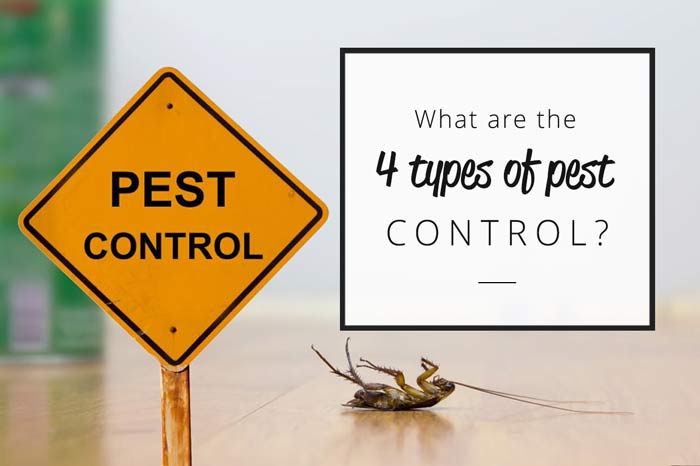Facts About Pest Control Revealed
Facts About Pest Control Revealed
Blog Article
About Pest Control
Table of ContentsIndicators on Pest Control You Need To KnowThe Buzz on Pest ControlSome Known Incorrect Statements About Pest Control Not known Facts About Pest ControlSome Known Facts About Pest Control.
Limitations of Chemical Management Have the ability to evaluate pest issues, determine if management is essential, and make suitable referrals using IPM techniques. Know with various techniques of insect management - their advantages and restrictions. Understand the value of helpful insects. It is not possibleor even desirableto rid gardens of all pests.This phase discusses (IPM), a strategy that utilizes understanding concerning insects and their, methods, nonchemical approaches, and pesticides to handle pest issues. Additional information regarding IPM for certain plants is consisted of in chapters that focus on those plants. Parasites in a yard or landscape might consist of insects and mites, weeds,, mammals, and birds.
Lots of people rush to pull, hoe, or spray every weed they see. Insects and weeds, nevertheless, play a role in the. After growing a garden or developing a yard, the natural procedure of plant succession starts to improve and nonnative plants. A weed expanding in a yard represents the first stage in a series of occasions that, if enabled to proceed, can at some point result in a woodland.
What we call "bugs" are part of an all-natural system at work. Only human beings think about certain species pests when they occur where they are not desired.
What Does Pest Control Do?
Pests at risk to a chemical were quickly killed, leaving immune ones to breed and increase. It came to be clear that chemicals alone would not resolve all insect troubles.
An IPM plan permits some level of parasites in the environment. Parasites are much less most likely to make it through a program that uses several methods of reducing their populations. Integrated bug management was very first suggested by entomologists because insects were the first group of bugs to prove hard to manage with chemicals alone.
insect and host properly. and think about financial or aesthetic injury. A limit is the point at which activity need to be taken. a treatment approach making use of mechanical, cultural, biological, or chemical controls, or a mix of these approaches. success of therapies. IPM has extended beyond bugs to administration of all pest populations: weeds, condition microorganisms, and creatures.
An Unbiased View of Pest Control
Administration instead than eradication of pests is the goal. An IPM plan starts with a careful evaluation of each insect infestation. Just after that can one make a decision regarding the appropriate methods needed to subdue parasite tasks. The life process of the pest, possible damage, natural adversaries, and impacts this article of weather, to name a few aspects, are thought about before a control strategy is carried out - Pest Control.
Clover expanding in a grass might be seen as an undesirable weed, however as a vegetable it is synthesizing nitrogen for the soil and the blossoms are giving click here for info nectar to honey and various other. Tolerance for some weeds may be part of an IPM strategy. may be consuming the fallen leaves of a plant, but when they are determined as the larvae of Eastern tiger swallowtail butterflies, their damage might be tolerated so we can delight in the beautiful butterfly.

The 2nd most crucial tool in parasite management is early intervention. Being present and watchful in the garden guarantees very early detection. Reacting to issues quickly, before they have time to increase, needs a much less dramatic treatment. The third most crucial tool is recordkeeping; tracking what occurs in the garden makes it possible for a garden enthusiast to acknowledge patterns and make informed decisions.
Pest Control Can Be Fun For Anyone
Many safe, useful, nonchemical techniques of plant security and bug monitoring might lower or eliminate the need to spray. Other techniques are most helpful when made use of with pesticides. To apply monitoring methods appropriately and to decrease losses, garden enthusiasts need to understand the types of parasites that attack plants and understand pest biology.

Conducting a soil examination and applying only the advised amount of fertilizer and lime takes full advantage of the benefit to the plant while reducing troubles associated with extreme usage of fertilizer - Pest Control. Covering the soil with numerous inches of mulch shields the plant in a number of methods: lowering soil water loss to evaporation, decreasing weed his explanation competition, supplying nutrients, and producing an ideal environment for earthworms and microbes that maintain the soil loose for roots and break down natural material to release nutrients
If mulch touches the trunk, it can create a way for voles, bacteria, and fungi to attack the plant. Do not use manure or compost that has not thoroughly broken down as a leading dressing because it can urge unwanted parasites. Study suggests that tilling the soil is harmful to dirt framework.
The Single Strategy To Use For Pest Control
If tilling is considered needed, think about doing it in the loss when the life cycles of many insects brings them near the surface area. At the surface, insects come to be subjected to the weather condition as well as birds and other all-natural adversaries.
Report this page